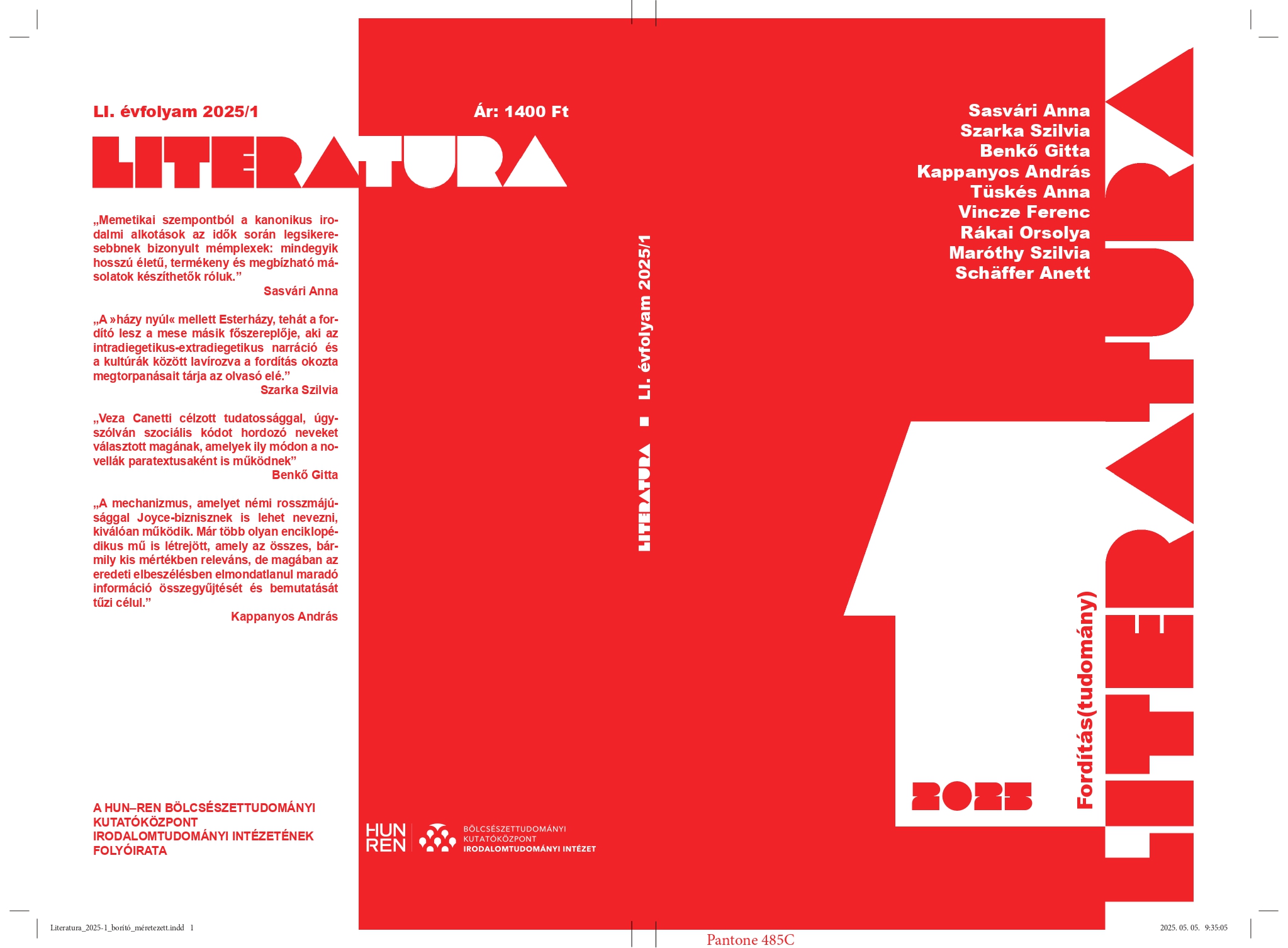Az elvárt tudás fordíthatósága
Absztrakt
The most elementary part of the translation process is the transcoding of the cognitive data embedded in the source text, i.e. the linguistic message. In the case of literary texts, this is complemented by additional tasks such as the operation of genre codes and poetic function, and the assertion of historical and sociological indices. Moreover, a literary text always relies to some extent on the (primary) cultural context surrounding its writing and publication, which necessarily differs from the (secondary) context of readings that take place in another time, space and language. A significant part of the information contained in the primary context, depending on the distance, is always missing from the secondary context. It is not only the conventions of literary translation that limit the possibilities for the literary translator to explicitly replace this information, but also the well-established fear that such implementations may undermine the autonomous structure of the literary work. This paper reviews the occurrences of and possible solutions to this challenge, relying primarily on the examples of James Joyce’s Ulysses.



